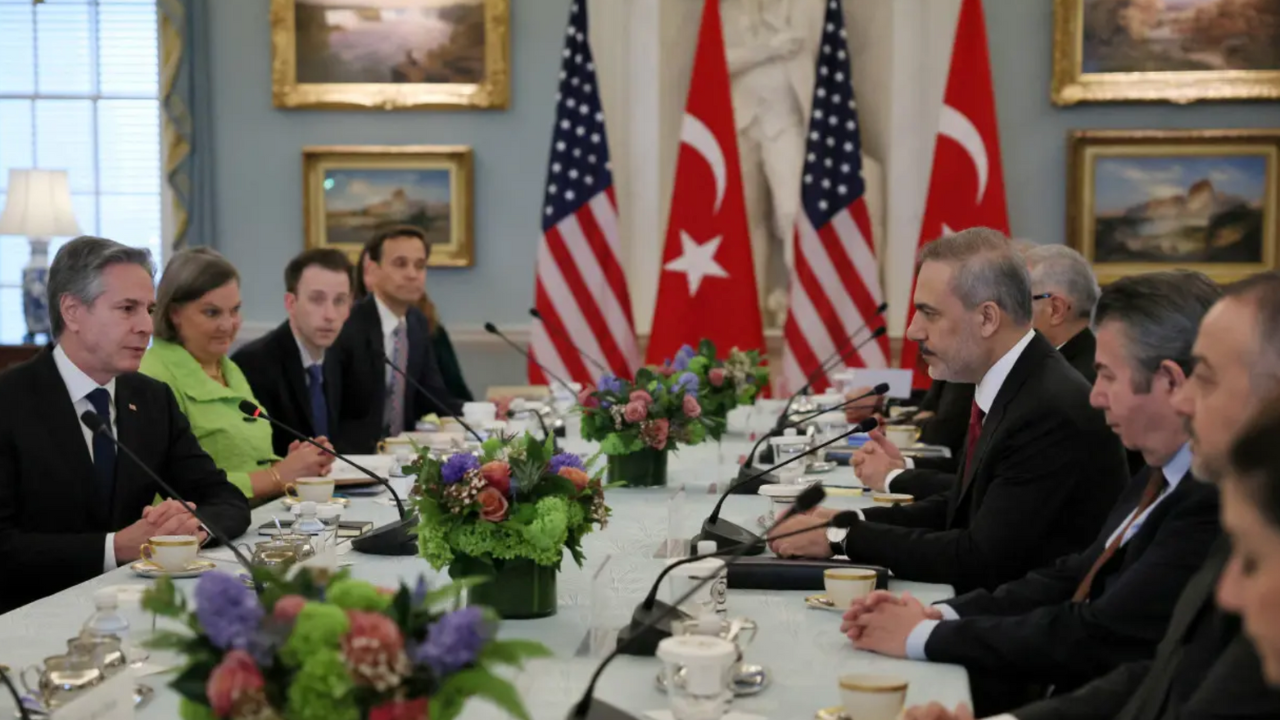
Publication
The US raises the stakes in the South Caucasus game

ARVAK Center comment, 15.03.2024
Following the visit of Turkish Foreign Minister Hakan Fidan to the United States for negotiations within the framework of the “Bilateral Strategic Mechanism”, international media are already publishing materials with references to particular institutions and politicians of both countries. The available information on this matter is not full, and it is not possible to figure out the complete agenda of the negotiation and, most importantly, of the agreements reached.
In this context, US Ambassador to Turkey Jeff Flake made a relatively lengthy statement on the Turkish TV, stressing that there are already actual results in defense cooperation, trade growth, and synchronization of the two countries’ positions on Syria and ISIS. At the same time, the Ambassador noted that Washington and Ankara have allegedly not yet managed to reach an agreement on the issues of Russian Air Defense Systems in service with the Turkish army and the possibility of Turkey’s purchase of 5th generation multirole fighters from the United States. At first glance, J. Flake’s statements seem to reflect both the alleged agenda of the negotiations and their results quite convincingly. In any case, he did not express any sensational ideas, nor did he announce any points about breakthrough, epochal agreements between the United States and Turkey.
Meanwhile, there are some reasons to assert that such agreements did take place, and Flake, for well-known reasons, only demonstrated what lies on the surface of the “double bottomed box”. By the way, this is also proved by the fact that the current head of the Turkish intelligence (MIT) flew to the United States with Fidan, but the Turkish and American media preferred not to disclose this “minor” detail. The most interesting officially published news about the American–Turkish negotiations, which allows drawing some sensational conclusions, is the joint statement by Blinken and Fidan that Washington and Ankara have agreed to work together to resolve the Armenian-Azerbaijani conflict and promote the signing of a peace treaty between Yerevan and Baku.
This can only mean one thing – the process of ousting Russia from the South Caucasus has entered a decisive phase. The statement on the settlement of the Armenian-Azerbaijani conflict does not mention Russia, and the inclusion of Turkey in the role of mediator testifies Washington’s plans to finally withdraw Moscow from the region, in which the West intends to see only one “watchdog” and “arbitrator” – Ankara, which, in turn, will be liable only to the United States. However, it is possible that after the US elections, Washington’s priorities in the region will change and undergo a correction in accordance with Trump’s vision of solving the Russian and Iranian problems, which will naturally affect the future of the geopolitical combination described above.
Meanwhile, against the background of deterioration of political relations between Yerevan and Moscow on the one hand, and the readiness of the Armenian authorities to open a “new era of relations with Turkey” on the other hand, the Biden administration cannot miss the chance when it can create for its de facto satellite (Turkey) the image of a peaceful and fair country, equidistant from Armenian and Azerbaijani interests and ready to guarantee the reconciliation of the parties on the basis of mutual respect and consensus of interests. We dare to assume that the American negotiators convinced their Turkish colleagues to show signs of attention to Yerevan, to sharply moderate aggressive rhetoric, to demonstrate readiness for active political and economic partnership (unblocking the border, liberalizing the visa regime and, why not, assistance to Artsakh refugees, etc.), and, on the other hand, to put pressure on Baku to stop the acts of creeping occupation of Armenian territories and maximalist demands on Yerevan in the context of peace talks.
The stakes in the game of pushing out Moscow from South Caucasus have increased manifold, the game is in full swing, and “minor” Azerbaijani claims to border villages, enclaves, arable land, etc. can now only hinder the process of global “de-Russification” of Armenia and the parallel cautious understanding by the Armenian society of the introduced idea of the possibility of peaceful coexistence with the Azerbaijani-Turkish world.
If in the near future Turkey’s aggressive and arrogant rhetoric decreases sharply, and constructiveness and progress emerge in the Armenian-Azerbaijani negotiation agenda, then there will be every reason to state that the huge American bets in the big game against Russia are justified.
